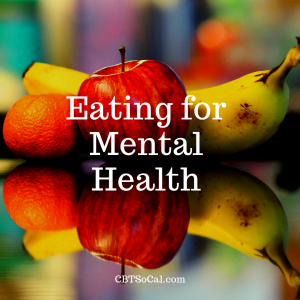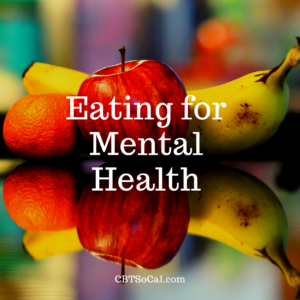The mental health benefits of healthy eating


The food we eat impacts not only our physical well-being but also our mental well-being. Our food is our body’s fuel and it contributes to how our mind and our body function in our daily life.
Stay Hydrated!
Drink at least 8 glasses of water a day. Mild hydration can lead to difficulty concentrating, fatigue, and changes in mood.
Limit caffeine if you feel anxious. Excessive caffeine can trigger panic attacks if you already suffer from anxiety. Try tea instead of coffee. Tea has less caffeine than coffee and has antioxidants which protects body tissues and prevents cell damage.
Eat Breakfast!
Be sure to start your day with a healthy meal. If you are in a rush, eat a piece of fruit, a whole grain granola bar, and some yogurt.
Avoiding skipping breakfast. Breakfast gives your brain and body the fuel it needs to function during the day. Skipping breakfast can lead to “brain fog” and fatigue.
What About Lunch And Dinner?
Eat meals high in fruits, vegetables, whole grains, nuts, and fish. People who stick to these foods are 30% less likely to develop depression than those who do not.
Avoid excessive amounts of fried foods, sugary foods, and high-fat dairy. Not only are these foods related to weight gain and risk for diabetes, they also contribute to an increased risk of depression.
Free And Low Cost Resources!
Use a free app such as Chronometer, which helps you to logs your meals and informs you if you are not meeting your daily nutritional needs.
Utilize your local grocery stores! Healthy foods can also be affordable. Buy a dozen eggs and have hardboiled eggs as a quick snack before work or in between tasks. Eat apples, bananas, or a pack of almonds before your commute.
Healthy eating can require some preparation and planning. However, the benefits to mental health are well worth the efforts!

Author Dr. Jason von Stietz specializes in Cognitive Behavior Therapy and Sport/Performance Psychology in Torrance, CA.
